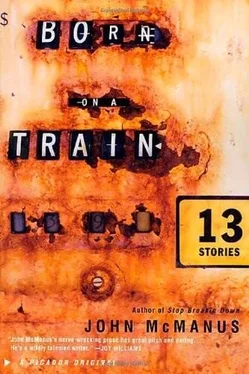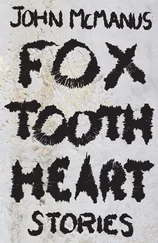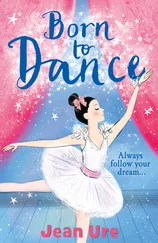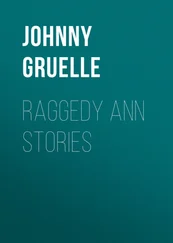Ben’s skin was already flaming into red. He stood and scratched his burnt back against drywall and rubbed his itching legs on the edge of a cardboard box. He looked up at Celeste and wondered what kind of sports car she had ridden in, but he didn’t ask her; he didn’t see why she’d remember.
Sina can’t remember how many Iraqis he shot as a boy during the war. For three years he patrolled the Iranian desert while meanwhile in the States I smoked pot, stole tapes from the mall, thirteen years old. Now we’re twenty-four. Mist on the Pacific dissolved in summer air. You’re lucky to be American, he said. You can go anywhere you want.
I was holding his left hand while he drove with his right.
I spent three years in jail for painting a giraffe, he said.
We were living off the cash I got from selling my return ticket. My visa had expired two months ago, and Sina knew a nightclub up in Auckland where I could get a fake one. I needed a legal job; you can’t pick kiwifruit until autumn.
The last town we passed before the car broke down was Wharekaka.
Perfect, Sina said when the engine died. I’ll bet there’s a beach right through those trees. He leapt across a grassy ditch on the road’s left shoulder. Don’t look at me, he said, look where we are. His long black hair blew in the wind as I took note of all the hooking clouds like swaths of crinoline. This was in the early afternoon.
We shouldn’t be leaving cars across the island like slime trails, I said.
I’m hungry, he said. Are you hungry?
They’ll have your registration, I said, but I had to follow him off the road into a virgin grove for him to hear me. Striding beneath those trees he looked like silver muscles, antlers that hadn’t grown yet. He threw his sleeveless T-shirt down onto a rock when we reached the beach, where there wasn’t much sand but trees grew crazily.
What happens if they send you home to Iran? I asked as we walked downshore.
I’ll go to prison.
How long?
A year for every illegal month abroad.
How many months have you been gone?
He thought about it. Fifty, he guessed. Sixty.
Blue sky, red blossoms fought above the sea. We climbed into a vast pohutukawa tree, its branches an inverted dome where we swung our legs above the rhythm of waves. Avocados! Sina cried, and he dug through his backpack and stood up on the rough bark with three and juggled them. When he staggered backwards, I thought he’d surely fall and split his head on a rock, but for seven rounds he never faltered. He peeled his avocado in a swift, unbroken curl and reassembled its skin upon the bark. Together we bit into ripe, green flesh that melted when we mashed it in our mouths. Was that your last dollar? I asked, pointing to the fruit. He turned his empty pocket inside out and took my hand and stroked it.
What would happen if we did that in your country? I asked him.
It depends, he said. They’d probably put us to death.
The wind nearly blew me backwards from my perch. I thrust out my hand to right myself and lost my avocado to the sea. Sina offered me a piece of his, and we bit it together. He wiped its green pulp from my nose. When I’d eaten the last bite he licked the pit clean and pitched it into the water.
We rode to the next town in the back of a police car. Sina had been grinning on the roadside with his thumb out when it came. Get back, I’d shouted, but he shrugged and said, They can’t do a thing to me. We stood in the car’s shadow when it stopped. How you fellows doing? he said, and we got in. Where you from? said the cop after introductions.
States.
You?
Papua New Guinea, Sina said.
I would have guessed the Middle East, said the cop. He had an untrimmed mustache, and I wondered what New Zealand called its FBI, if this was how their cars looked. What language do they speak in New Guinea? he asked.
I don’t remember, Sina said. I’ve been away from home for quite a while.
Where are you from? I asked the man.
Here, he said.
He quickly rounded curves and overtook a van. We passed brown earth stained green, burnt stumps, hills like beached whales, wild grass that bowed in unison to the sea. Shadows all fell backwards in the southern hemisphere. Let me see your passport, the policeman said to Sina. I’ve never seen one from there before.
It’s hard to get to.
It’s against the law not to carry your passport.
It’s deep in the bowels of my bag, Sina said, and I laughed uneasily. I had a blossom in my pocket that I crushed and tore. The cop looked in his rearview mirror: he hated me, and his yellow eyes shone like glass.
I could pull this car over now.
I’ve got it, Sina said.
Let me see it then, the cop said, shouting now. As he swerved around a bird, I shut my eyes and wished for Sina not to have said New Guinea. I loved him and we needed for this cop to die. I tried to make it happen with my mind.
Who’s the leader of New Guinea right now? the cop demanded with narrow eyes. What’s the capital? He slowed the car down as he said, What city did you live in? What’s the currency? We were coming into a sad wooden town. Red roofs and a stormy sky, an empty store, a square foundation in a grassy field. Sina coughed. What’s the national anthem? sneered the cop. I was ready for him to disappear. He was turning the landscape grayer than the sky could ever light it. I saw the old roadbed by the highway, the sheep, the furrows on the hills below a sword-shaped cloud. I knew it was risky to whisper let’s kill him in Sina’s ear. I saw a perfect cliff to drive the car off.
You don’t even swat flies, Sina said to me aloud.
Please, my head cried.
The cop had stopped his car by a derelict stone bank. He turned his head around. Port Moresby, Sina said.
Are you threatening me?
My hands and forehead sweated. I don’t know which I wiped on what.
Sina held my sweating hand. Port Moresby was the capital of Papua New Guinea, he said. Bill Skate was the prime minister. Sina had lived in Lae, on the Huon Gulf. A kina equaled a dollar ten. I jumped when his palm began to vibrate from the deep, rich notes of the anthem he hummed. He sang a few words. I never learned the rest, he said. There’s so many different languages. The policeman tapped a finger on the wheel as Sina’s voice carried out into an empty ghost town: thousands of languages.
The cop shook his head. You’ve got a good voice, he told Sina. He apologized. When Sina opened the car door, I saw the ocean gleaming across a field of yellow flowers. I felt like a chain of powerchords. It was wonderful to be walking. My legs knew the air was clean; it reeked of brine. I wanted to play those moments over and over.
Let’s work on our tans, Sina said, although his was already a deep brown.
We’ve got to get rid of that car, I said.
He scanned the sky and laughed into my eyes and said, You think they’ll come in choppers?
We could both go to jail.
My father spent twelve years in jail for owning Bob Dylan tapes, he said, and he ran ahead of me and jumped up and down, capturing energy from the sun. It made me want to be a good person. He did cartwheels. The whole town was three blocks square; electric lines petered out into the hills. Chalky cliffs rose like glaciers from the water, trees greening them like moss. When we got to the rummage sale where two old native women smiled at a table piled with bright, flowery clothes, I could see the whole ocean.
The women wore pale blue skirts that sagged on the ground, and I couldn’t help but stare at them. Kia ora, they said together.
Hello, Sina said.
Sorry, said the left one, her eyes pointed somewhere between the two of us. All we’ve got is women’s clothes.
Читать дальше












